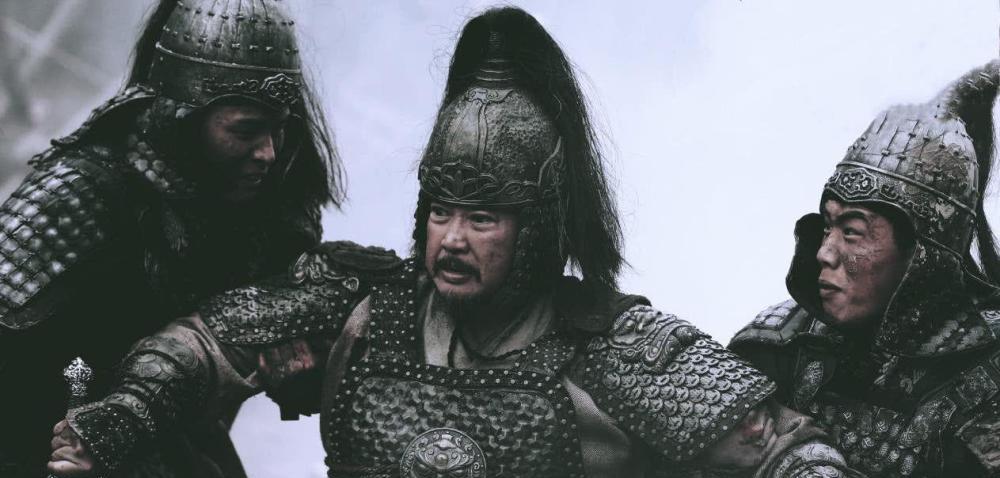The Ming Dynasty did not employ a large number of Hu people as generals, as the Tang Dynasty did. Except for the tusi chieftains of the frontier, few Hu people served as military generals of the Ming Dynasty. However, it was not completely absent, and the general soldier of Datong at the end of the Ming Dynasty, Man Gui, was not only a Mongol, but also dutifully dutiful, and was ordered to go to Beijing to serve the king, and heroically died at the feet of the Son of Heaven.
Whether Mangui was Han or Mongol has always been a mystery. Ming history says that he was a Mongol, and he told Chongzhen that his ancestral home was Yi County, The capital of Yanzhou, Shandong, and that he had been an avant-garde soldier of Xuanfu for generations. Of course, Man Gui did not dare to lie to the emperor, and the greatest possibility was that his family was an early naturalized Mongol and had always been a military household of the Ming Dynasty.

Whether he was Mongol or not, Mangui's loyalty to the Ming Dynasty was unquestionable. When he first joined the army, Man Gui was highly skilled in martial arts and won every battle, but he liked the bounty more than being an official, until he was almost 30 years old, he was promoted to the general flag officer. This officer is almost equivalent to a platoon leader, with 50 men.
In the middle and late Ming Dynasty, both the Mongols and jurchens often raided the border and fought frequent wars. Man Gui rose slowly, and it took more than ten years to rise to the rank of Hundred General, Thousand General, and Garrison. However, the advantage of this is that Man Gui is very experienced in actual combat and has learned how to deal with the civilian officers who lead the troops.
After the great defeat of Salhu, more than 100,000 main field forces of the Ming Dynasty were annihilated, and many generals were killed. In order to make up for the loss of officers, the imperial court selected a group of young generals and transferred them to the Liaodong front. Although Man gui is not light, his official position is not high, and he has fought many victorious battles. He was successively favored by the supervisors Yang Hao, Wang Xiangqian, and Sun Chengzong, and was soon promoted to deputy commander-in-chief, leaving only one step away from the general soldier.
This is due to the fact that Man Gui is very much in line with the ideal image of a military general in the minds of these civilian officials: rough, straight, brave, a pioneer, dare to fight. Unlike those generals, they like to play slippery heads and often violate the yin and yang.
Man Gui did live up to expectations, and the biggest difference between him and other Ming generals was that he was never afraid to confront the Eight Banners Army. Sun Chengzong treated him as a fist unit, always used at critical times.
During the battle during the construction and defense of Ningyuan City, Man Gui repeatedly attacked, killing and wounding a large number of Mongols and the Eight Banner Army, preserving ningyuan City and thwarting the Eight Banner Army's attempt to capture Ningyuan. Man Gui was promoted to the rank of chief soldier because of this Ningjin victory, which was the highest level that a Ming dynasty military general could achieve. The Emperor of the Apocalypse also gave him the Shangfang Sword.
Subsequently, Man Gui was transferred to Datong as the chief soldier. Datong was an important pass in the nine sides of the Ming Dynasty, and as soon as Man Gui took office, he ordered the strengthening of the guard, the rebuilding of the beacon and fortress system, and the re-consolidation of the previously loose defensive line.
In 1629, the Eight Banners Army broke through the defense line of the Great Wall and penetrated deep into the key area of Gyeonggi, threatening the city of Beijing. The Chongzhen Emperor hurriedly ordered the general soldiers in various places to serve the king. Man Gui received the order and immediately led five thousand cavalry to the city of Beijing.
Man Gui was one of the first Qin Wang's troops to arrive in Beijing. At this time, the Eight Banners Army was in full swing, and as soon as it found Mangui, it used its superior forces to launch an attack. Undaunted, Man Gui led his troops directly to the city of Beijing, and the defenders of the city fired artillery to support it, but the two armies were mixed together, and the shells also injured Man Gui and his army by mistake.
The Chongzhen Emperor received Man Gui and gave him the Shangfang Sword and put him in charge of King Qin's army. However, the various Qinwang troops moved slowly, and after several major wars, Mangui's troops became less and less. At the urging of the eunuchs, Man Gui had to personally lead the troops to camp two miles outside the Yongding Gate in Beijing.
The Eight Banners Army took this opportunity to cut off Mangui's connection with the city and launched a fierce attack on him. Although Man Gui fought a bloody battle, he had fewer soldiers and was outnumbered, and he died heroically in the city of Beijing at the feet of Tianzi. There has always been a legend that Man Gui was killed by an arrow from a friendly army, and it was the Guan Ning army that shot the arrow.
The Chongzhen Emperor was extremely sad to hear the bad news, and Daming lost this loyal and courageous general. Compared with other Qin Wangjun, Man Gui never thought of his own safety, and there were too few brave generals in successive bloody battles with the Eight Banner Army.
References: Ming Shi Vol. 271 Liechuan No. 159, Sin Weilu Mangui Biography